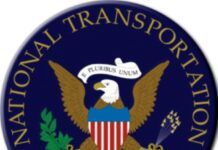
Randy Babbitt spent four days at Sun ‘n Fun this week, a first for an FAA administrator. Babbitt also is the first FAA administrator who has worked as a general aviation flight instructor, and he spent many years flying for the airlines. Those facts earned him a warm welcome at the show, though he still had to field the hard questions from the audience at the public forum on Friday afternoon. Babbitt and his staff addressed questions about through-the-fence operations, medical issues, and airport-community relations. Babbitt said the through-the-fence issue is “complicated,” and a staffer added that they are working to release a proposal to address the problem before summer. James Fraser, deputy federal air surgeon, responded to a question about the sport pilot rule that disqualifies pilots who have been denied a medical. Denied pilots can request a review to see if they can qualify for a special issuance, Fraser said. If they get it, then they can choose to let it expire and fly under sport pilot rules, if they want to.
A pilot from Venice, Fla., said some airport sponsors don’t understand their responsibilities under the law, and FAA staffer Randy Fietz agreed. He said the FAA is working to become more “proactive” in educating sponsors, rather than reacting to problems after they occur. Babbitt took the opportunity to chastise GA pilots for an accident record that should be better. “We’re seeing some bad decisions being made,” he said. “There’s too much VFR flight into IFR conditions, and too many fuel-exhaustion accidents.” He added that amateur-built aircraft still have too high an accident rate. “They account for 10 percent of the GA fleet, but 27 percent of accidents,” he said. An area of special concern is the first 20 to 40 hours after transfer of ownership. “It’s not the builders [getting into accidents], but the second owners,” he said. “We need better transition training.”
Babbitt also said he’s been pleased with the positive response to the FAA’s recent decision to allow pilots to fly while using antidepressants. “This change applies to any class medical,” he said. “It’s a real positive step forward. If you had a vision problem or diabetes, you could treat it. This is a recognition that depression is an illness that is treatable.” During a press conference prior to the open forum, he said the LSA safety record is excellent, and overall the agency is “very pleased” with how that segment is doing. Regarding 100LL, he said there are several “promising” alternative fuels being tested, but securing approval is a “deliberative process.” Any substitute fuel needs to produce the exact same power and performance as the current fuels, he said, “so we don’t have to re-certify all the airplanes.”


































